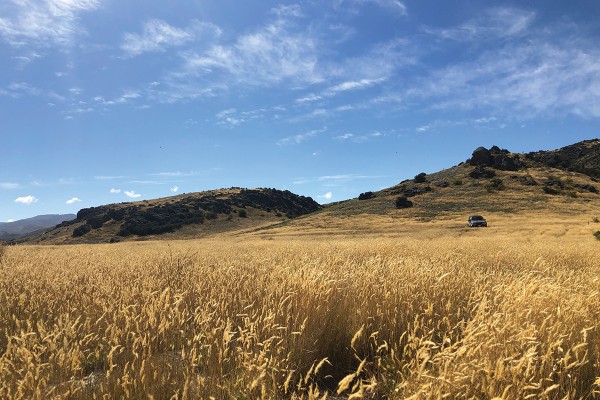It’s no secret that Aotearoa faces a crippling and harrowing mental health crisis. From a young age, you’re told to ‘harden up’ or ‘suck it up’. Did you get hurt playing rugby? Toughen up and get back out there. Upset about something? Shut up and stop complaining, your life isn’t that hard, mate. This culture has encouraged being stoic and dismissive, and emphasised that our feelings are a nuisance, rather than a normal part of human life. The people who experience this culture the most are those in our rural communities, especially young farmers.
When you talk about mental health with your friends, or when you see it in the media, the picture depicted is usually someone in a suburban home looking a bit sad, or a young person with colourful hair struggling to make ends meet. And sure, these people exist, but they don’t represent the group that bears the brunt of our mental health challenges. Over the past several years, we’ve seen a growing divide between those in the urban and rural communities. Many city dwellers or environmental activists hold the opinion that farming is detrimental to the planet, and that farmers are actively contributing to the climate crisis while sitting on an ivory tower of land and generational wealth. This is only true for a minority of farmers. Not every farmer is selling out to Big Dairy and fucking the waterways. But this discourse and generalisation means that those famers and young people in our rural communities get associated with “bad vibes”, and get left out of the mental health discussion because they’re “part of the problem”. That’s unacceptable, wrong and downright harmful.
Every day, new statistics and headlines reveal what a shitshow we’re in. According to UNICEF, we have the second worst youth suicide rates in the developed world, which is more than double the rates seen in other OECD countries. We have months long wait times for psychologists and counsellors, unless you want to fork out hundreds of dollars in cash to see a private specialist. The mental health crisis is made worse by other problems: we have a housing crisis, with many Kiwis finding themselves living in cold, run down homes. We have shocking child poverty rates. We are still witnessing the upsetting and gut-wrenching effects of colonisation on our indigenous communities. And that’s all on top of the current cost of living crisis. It’s not great, and it’s especially bad for young people in small communities, living without the camaraderie of other students and like-minded peers.
Here at Otago, many of us feel comfortable talking about mental health and our feelings. We live in a tight, closely knit community, with many of us usually keeping a pretty keen eye out on our friends and classmates. We’re reminded every year of the facilities available at Student Health. Most departments and lecturers will also reinforce this message, providing pathways for extensions and support if you need it. We’ve all posted an Instagram story or shared a Facebook post encouraging people to reach out if they need help. Some of us are even pretty blatantly open about our struggles, or the medication we may be on to help us through life. We’re looking out for each other, but we’re not looking out for our rural mates. We can’t leave them behind. We can’t leave them out of this discussion.
Hug a farmer. Save a life. In all seriousness, you never know what kind of difference you can make.






